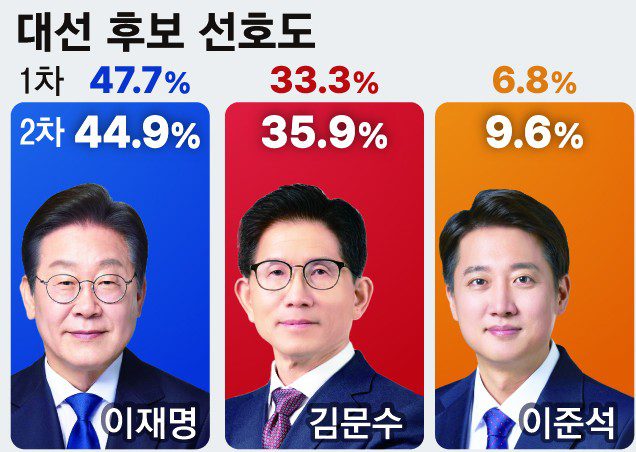Cryptocurrency Dominates South Korea’s Presidential Election
Cryptocurrency has become a central issue in South Korea’s upcoming presidential election. Candidates are actively seeking support from the country’s growing base of digital asset investors, spanning multiple generations. The election, triggered by the impeachment of former president Yoon Suk-yeol, focuses heavily on crypto-friendly policies.
Key Crypto Proposals from Presidential Candidates
All three leading candidates are proposing measures to boost the local crypto economy:
- Legalization of Spot Bitcoin ETFs: This is a key promise by multiple candidates, aiming to provide safer exposure to crypto assets.
- Easing Banking Rules: Currently, only five platforms are allowed to offer fiat-to-crypto trading. Candidates propose to broaden access.
- Won-Pegged Stablecoin: One candidate has proposed launching a stablecoin pegged to the South Korean Won to reduce reliance on foreign tokens.
The Candidates and Their Crypto Stances
- Lee Jae-myung (Democratic Party): Championing easing banking rules and launching a won-pegged stablecoin.
- Kim Moon-soo (People Power Party): Also supports Bitcoin ETFs and aims to define a new direction for the conservative base.
- Lee Jun-seok (Reform Party): Criticizes the stablecoin proposal and focuses on supporting the gaming industry, including P2E games.
Debate on Stablecoins
A core point of contention has been the viability and safety of stablecoins. Concerns have been raised regarding the backing and risk management of a new won-pegged stablecoin, drawing comparisons to past failures like TerraKRW.
P2E Gaming and Crypto Integration
Lee Jun-seok has emphasized the importance of the gaming industry, including play-to-earn (P2E) games. Despite current bans on P2E games, there is growing interest, particularly following the launch of a new title by Nexon, a major South Korean game developer, incorporating its own cryptocurrency.
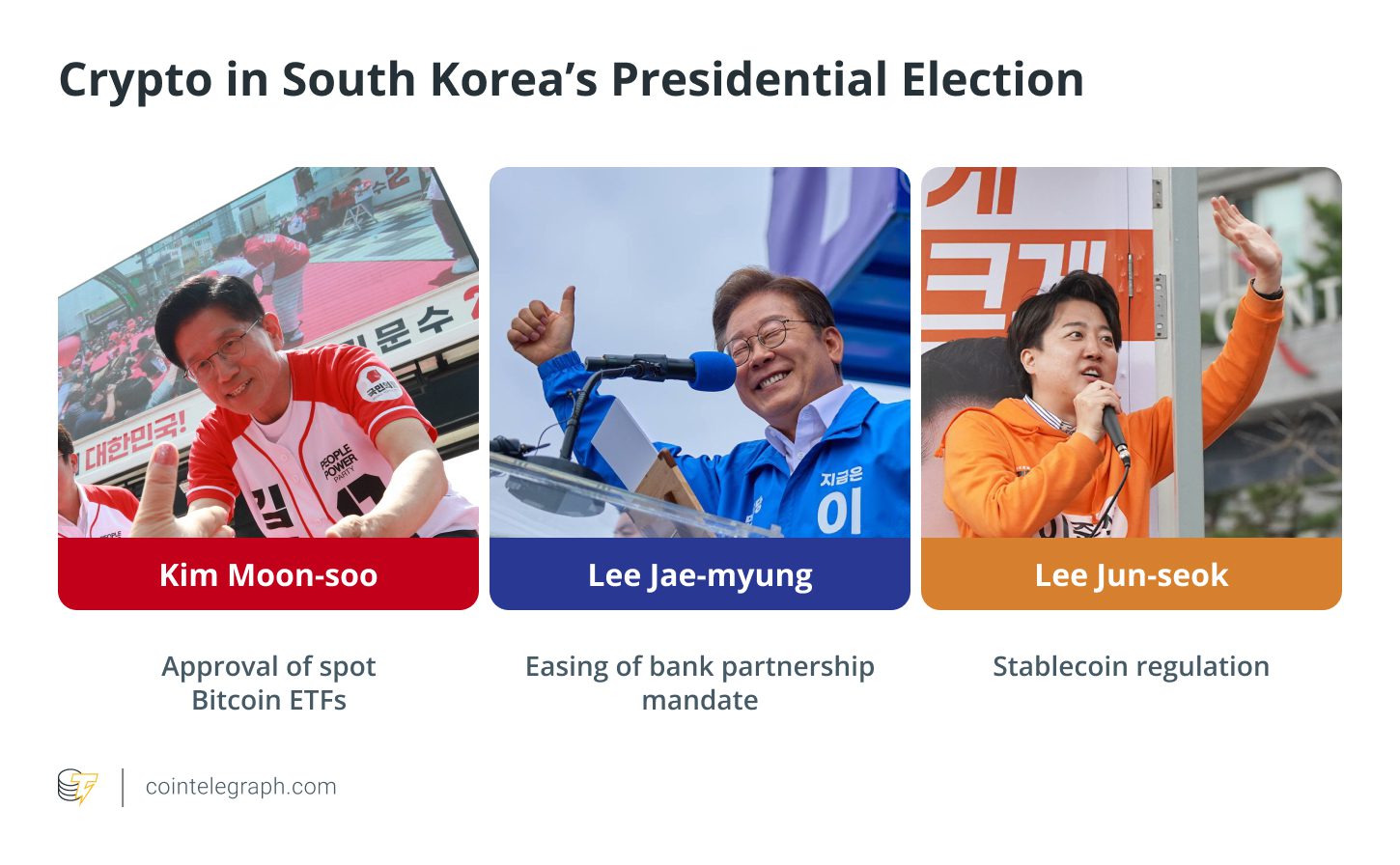
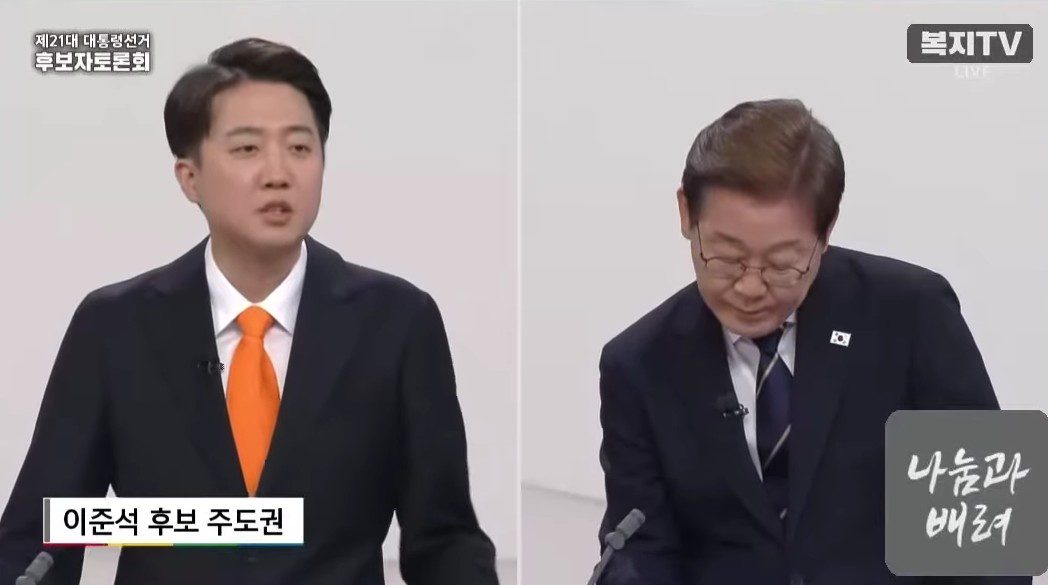
Changing Demographics of Crypto Investors
South Korea has a substantial crypto investor base, with 9.7 million KYC-verified investors by the end of 2024. The most significant growth is seen among investors in their 30s and 40s, with older investors holding a larger share of crypto assets.
Calls for Bitcoin ETFs
Financial industry leaders are urging regulators to approve Bitcoin and Ether ETFs to meet rising demand, especially among older investors who seek safer investment options. The approval of Bitcoin ETFs aligns with global trends, following the U.S. approval of spot Bitcoin ETFs in early 2024.
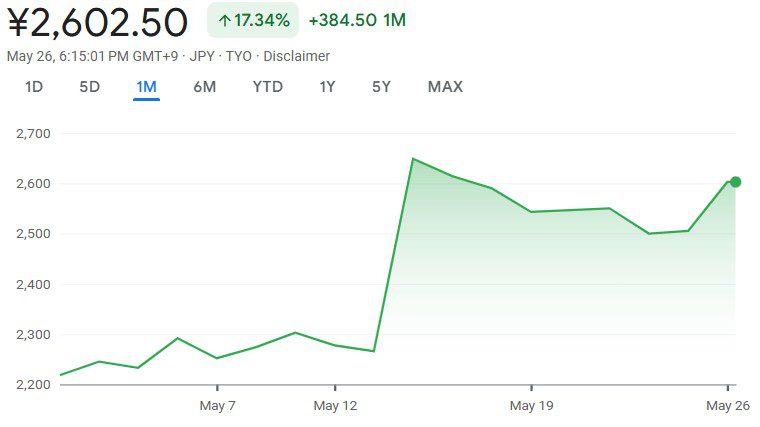
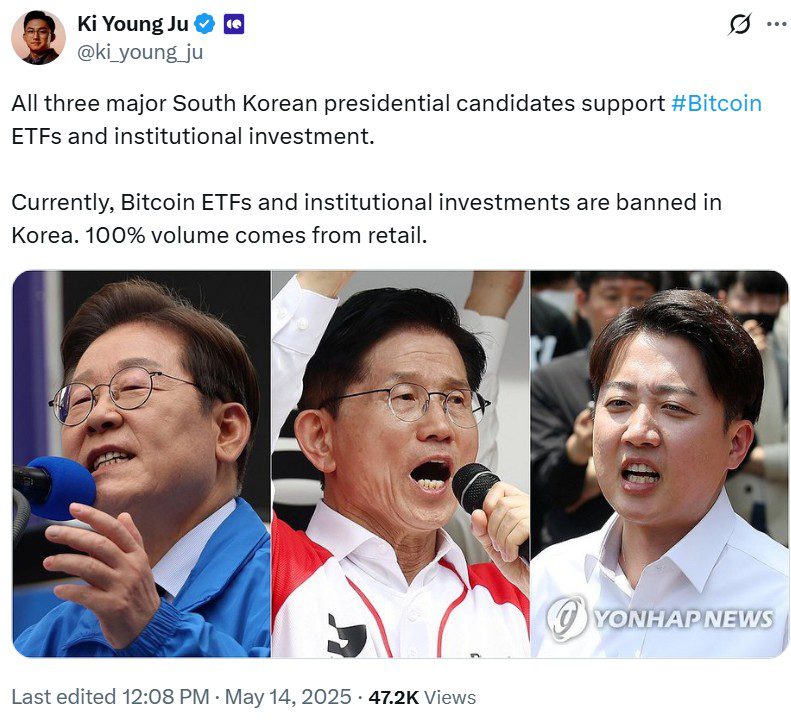
Regulatory Hurdles
South Korea’s Capital Markets Act currently doesn’t recognize crypto as eligible assets for ETFs. The Financial Services Commission (FSC) is evaluating legal pathways to potentially allow Bitcoin ETFs through its crypto committee.
Election Dynamics and Crypto’s Role
The snap election has amplified the urgency of addressing crypto regulations. What was previously viewed as speculative is now a central policy issue, influencing the investment decisions of both young and older generations.
South Korea’s Crypto Market
South Korea ranks among the world’s largest crypto markets. The Korean won is the most-traded fiat currency against crypto, primarily driven by retail investors. Institutional involvement remains limited as the FSC plans a phased introduction for professional investors in 2025.
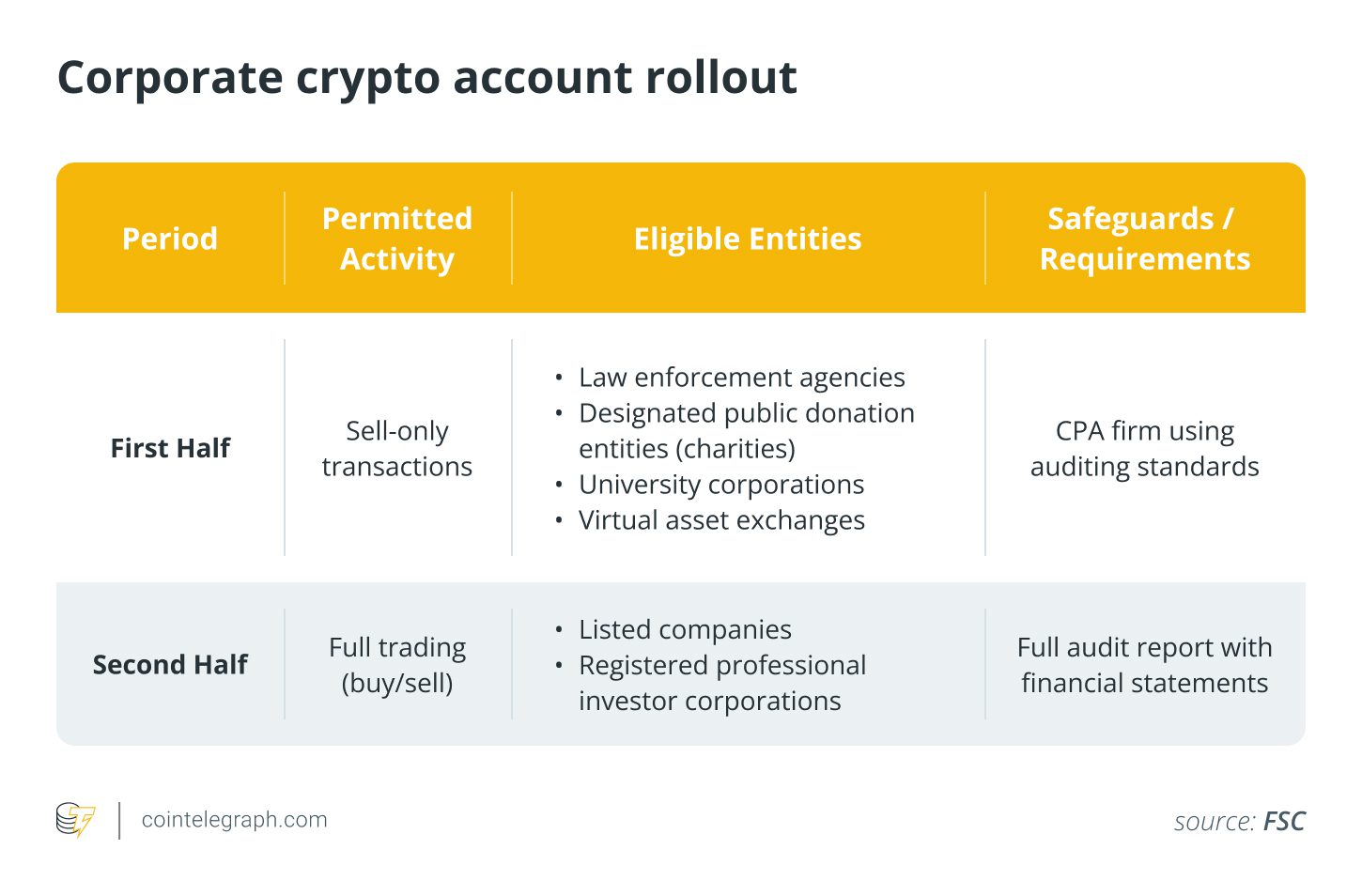
Public Sentiment and Voter Surveys
Public perception of crypto has shifted from skepticism to a more neutral and informed stance. Recent voter surveys indicate that Lee Jae-myung is the leading candidate, followed by Kim Moon-soo, with Lee Jun-seok trailing behind. The election is scheduled for June 3.
